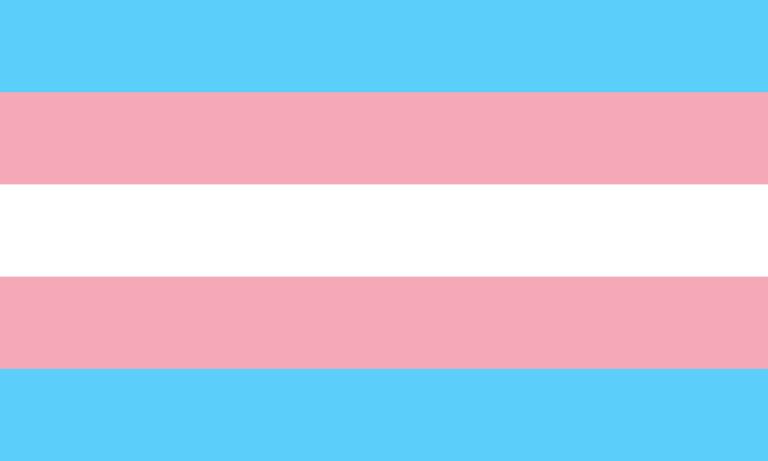New gender identity policy advocates for transgender students
Photo Credit: Wikimedia Commons
The colored stripes on the transgender flag represent the traditional gender colors for babies, while the white represents people who are transitioning.
November 4, 2019
Today’s social space is one that embraces sexuality, gender identity, and gender expression. In the wake of this climate, New Jersey state regulations have called for the Glen Rock Board of Education to enact a new gender identity policy as of Oct. 1.
The “Gender Identity and Expression” policy has been in discussion since Sept. 10, when the board voted for it to be introduced. The new district policy promises to make school “a safe learning environment free of discrimination and harassment, such as, but not limited to locker & restroom use, field trips and or classrooms,” for transgender students.
“I think that the policy will really make people feel comfortable,” said Junior Brooke McKeon.
McKeon is a transgender student who has been in the school district all of her life. She started transitioning in the sixth grade, and officially changed her name the summer going into eighth grade.
“Growing up, I would always dress girly and go to after care or preschool and dress up in the princess dresses that they had,” McKeon said. “I would always hang out with the girls, and I never wanted to do anything that the boys wanted to do. I always ‘knew.’”
She recalled that in fourth grade, she tried to act more like a boy, but quickly realized that it was not whom she wanted to be. That’s not how she wanted to dress, or present herself, she said.
The rest of that year was confusing for McKeon. She started to dress more feminine and wondered whether she might be gay. But as time went on, she realized that she didn’t simply just like boys, she wanted to be a girl.
“I’d see videos online about people that are transgender and I was like, ‘That’s what I want.’ I told my parents in fifth grade, ‘I don’t know what I want to do, but I know I’m not happy as a boy.’ For a year it was me going back and forth… I decided, ‘Okay, I’m going to do this because this is what I want,’” McKeon said.
Administration wise, middle school was a comfortable experience for her, with the exception of one of her teachers not using her correct pronouns. In Virginia, a teacher was recently removed from his job for not using aligned pronouns.
In seventh grade, McKeon was allowed to use the girls’ locker room.
Her first triumph, though, was in sixth grade when she was allowed to use the girls’ bathroom. Before that, however, she had to use the gender neutral bathroom that was in the high school.
This bathroom is one that high school principal John Arlotta prides the school for having.
“Most of what’s in that policy, we have been doing already. For example, before we were even aware that there may be transgender students, we tried to take a proactive approach and created a gender neutral bathroom down by the sports lobby,” Arlotta said.
The school also brought in members from the Ackerman Institute to educate them on how to best create an inclusive environment for transgender students. The representatives from the Ackerman Institute addressed the usage of bathrooms, locker rooms, and participation in sports. Besides this legislation, a separate policy was passed in New Jersey to faciliatate transgender student athletes in changing documentation to reflect their gender identity.
Towards the end of middle school, McKeon’s social experience was difficult. Once she entered eighth grade, she recalled a cruel joke from her classmates, accusing her of having “the Tranny touch.”
Back then, when one of her peers bumped into her, they might have acted like they contracted “the cooties.” Some boys in her grade made a game out of this, touching each other and passing “the touch” around. When McKeon found out about the game, it profoundly upset her and made her final months in middle school a challenge.
Once she arrived in high school, though, these issues seemed to vanish. She said that high school has been nothing but good, and no one has been openly negative towards her.
McKeon believes that this policy will positively affect any transgender students from now on. She believes that the new gender identity and expression regulation will make things easier for transitioning students and “not make it as much of a struggle to have to switch over” from one gender’s facilities to the other’s.
“I think that people are going to feel a lot more comfortable expressing themselves, because I know that’s one of the biggest struggles, really fitting in and feeling like you are a girl or a boy,” McKeon said. “People that are transgender and don’t want to feel different than everyone else… being in the bathroom and being in the locker room is a big step, and it makes people feel really good about themselves and more confident in being themselves.”




